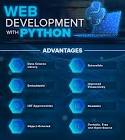Unleashing the Power of Cognitive AI: Shaping the Future of Artificial Intelligence
Understanding Cognitive AI: The Future of Artificial Intelligence
Cognitive AI represents a significant leap forward in the field of artificial intelligence, aiming to emulate human thought processes in a more sophisticated and nuanced manner. Unlike traditional AI systems that rely on pre-defined algorithms and data sets, cognitive AI seeks to understand, learn, and interact with the world similarly to how humans do.
What is Cognitive AI?
Cognitive AI refers to systems that can simulate human cognitive functions such as perception, reasoning, learning, and decision-making. These systems are designed to mimic the way the human brain works by using various technologies like machine learning, natural language processing, and neural networks.
The goal of cognitive AI is not just to process data but to understand it contextually. This allows for more dynamic interactions between machines and humans, enabling machines to adapt over time based on new information and experiences.
Key Features of Cognitive AI
- Learning from Experience: Cognitive AI systems can learn from past interactions and improve their performance without human intervention.
- Natural Language Processing: These systems can understand and generate human language in a way that feels natural and intuitive.
- Contextual Understanding: Cognitive AI can grasp context beyond mere data points, allowing for more relevant responses and actions.
- Adaptive Decision-Making: By analyzing patterns and trends, cognitive AI can make informed decisions even in complex situations.
Applications of Cognitive AI
The potential applications for cognitive AI are vast across various industries:
- Healthcare: In healthcare, cognitive AI can assist in diagnosing diseases by analyzing medical records and imaging data with high accuracy.
- Finance: Financial institutions use cognitive AI for fraud detection, risk assessment, and personalized customer service.
- E-commerce: Retailers leverage cognitive AI for personalized shopping experiences through recommendation engines that understand customer preferences.
- Education: Educational platforms utilize cognitive AI to create adaptive learning environments tailored to individual student needs.
The Future of Cognitive AI
The development of cognitive AI is still in its early stages but holds immense promise for transforming how we interact with technology. As these systems become more advanced, they will likely play an integral role in enhancing productivity across sectors while also raising important ethical considerations regarding privacy and decision-making autonomy.
Cognitive AI represents not just an evolution of technology but a revolution in how machines can augment human capabilities. As research progresses, it will be crucial to balance innovation with ethical responsibility to ensure these powerful tools benefit society as a whole.
Conclusion
Cognitive AI is poised to redefine the boundaries between humans and machines by enabling more natural interactions and smarter decision-making processes. As this technology continues to evolve, it promises exciting opportunities while also challenging us to think critically about its implications for our future world.
7 Essential Tips for Effectively Implementing Cognitive AI Solutions
- Understand the problem domain thoroughly before implementing a cognitive AI solution.
- Ensure that the data used to train cognitive AI models is of high quality and relevant to the task at hand.
- Regularly evaluate and update cognitive AI models to maintain their accuracy and relevance over time.
- Consider ethical implications, biases, and privacy concerns when developing cognitive AI systems.
- Provide clear explanations of how cognitive AI systems make decisions to enhance transparency and trust.
- Combine cognitive AI with human expertise for more effective problem-solving and decision-making.
- Stay informed about advancements in cognitive AI technology to leverage new tools and techniques.
Understand the problem domain thoroughly before implementing a cognitive AI solution.
Before implementing a cognitive AI solution, it’s crucial to thoroughly understand the problem domain. This involves gaining a deep insight into the specific challenges and requirements of the area where the AI will be applied. By comprehensively analyzing the context and nuances of the problem, developers can tailor AI models to address real-world needs effectively. This understanding helps in selecting the right data sets, designing appropriate algorithms, and setting realistic goals for what the cognitive AI solution should achieve. Without this foundational knowledge, there’s a risk of developing solutions that are misaligned with user needs or that fail to deliver meaningful results. Therefore, investing time in understanding the problem domain is essential for creating effective and impactful cognitive AI applications.
Ensure that the data used to train cognitive AI models is of high quality and relevant to the task at hand.
Ensuring that the data used to train cognitive AI models is of high quality and relevant to the task at hand is crucial for the success and accuracy of these systems. High-quality data provides a solid foundation for the model to learn from, minimizing errors and biases that could arise from inaccurate or irrelevant information. When data is carefully curated and directly aligned with the specific objectives of the AI application, it enhances the model’s ability to understand context, make informed decisions, and deliver reliable outcomes. This approach not only improves performance but also helps in building trust in AI systems by ensuring they operate effectively in real-world scenarios.
Regularly evaluate and update cognitive AI models to maintain their accuracy and relevance over time.
Regularly evaluating and updating cognitive AI models is crucial to maintaining their accuracy and relevance over time. As data patterns and user behaviors evolve, an AI model that was once highly effective can become outdated if not periodically reviewed. Regular updates ensure that the model adapts to new information, incorporates recent trends, and continues to perform optimally in changing environments. This process involves assessing the model’s performance metrics, identifying areas for improvement, and integrating fresh data to refine its algorithms. By doing so, organizations can ensure their cognitive AI systems remain robust, reliable, and capable of delivering accurate insights and predictions in a dynamic landscape.
Consider ethical implications, biases, and privacy concerns when developing cognitive AI systems.
When developing cognitive AI systems, it’s crucial to consider the ethical implications, biases, and privacy concerns that may arise. As these systems become more integrated into everyday life, they have the potential to impact decisions on a wide scale, influencing everything from healthcare to criminal justice. Developers must ensure that cognitive AI is designed with fairness in mind, actively working to identify and mitigate biases that could lead to unjust outcomes. Additionally, safeguarding user privacy is paramount; this involves implementing robust data protection measures and ensuring transparency in how data is collected and used. By addressing these concerns proactively, developers can build trust with users and create AI systems that are not only effective but also ethically responsible and respectful of individual rights.
Provide clear explanations of how cognitive AI systems make decisions to enhance transparency and trust.
Incorporating clear explanations of decision-making processes in cognitive AI systems is crucial for enhancing transparency and building trust with users. When AI systems can articulate the rationale behind their conclusions or actions, it demystifies the technology and allows users to understand how decisions are reached. This transparency not only fosters trust but also empowers users to make informed decisions about relying on these systems. By providing insights into the data used, the algorithms applied, and the reasoning followed, developers can create a more collaborative relationship between humans and machines. This approach ensures that cognitive AI is perceived as a reliable partner rather than an opaque tool, ultimately leading to broader acceptance and more effective integration into various aspects of daily life and business operations.
Combine cognitive AI with human expertise for more effective problem-solving and decision-making.
Combining cognitive AI with human expertise creates a powerful synergy for more effective problem-solving and decision-making. While cognitive AI can process vast amounts of data and identify patterns at an incredible speed, human experts bring intuition, creativity, and contextual understanding that machines currently cannot replicate. By leveraging the strengths of both, organizations can enhance their analytical capabilities and make more informed decisions. This collaboration allows humans to focus on strategic thinking and complex problem-solving while AI handles data-driven tasks, resulting in more efficient operations and innovative solutions. Integrating cognitive AI with human insight ultimately leads to better outcomes across various fields, from healthcare to finance and beyond.
Stay informed about advancements in cognitive AI technology to leverage new tools and techniques.
Staying informed about advancements in cognitive AI technology is crucial for individuals and businesses looking to leverage new tools and techniques effectively. As the field of cognitive AI rapidly evolves, keeping up-to-date with the latest developments can provide a competitive edge, enabling one to adopt innovative solutions that enhance efficiency and decision-making processes. By understanding emerging trends and breakthroughs, professionals can better anticipate changes in their industry, adapt strategies accordingly, and ensure they are utilizing the most advanced technologies available. This proactive approach not only fosters growth and innovation but also positions individuals and organizations as leaders in their respective fields.










